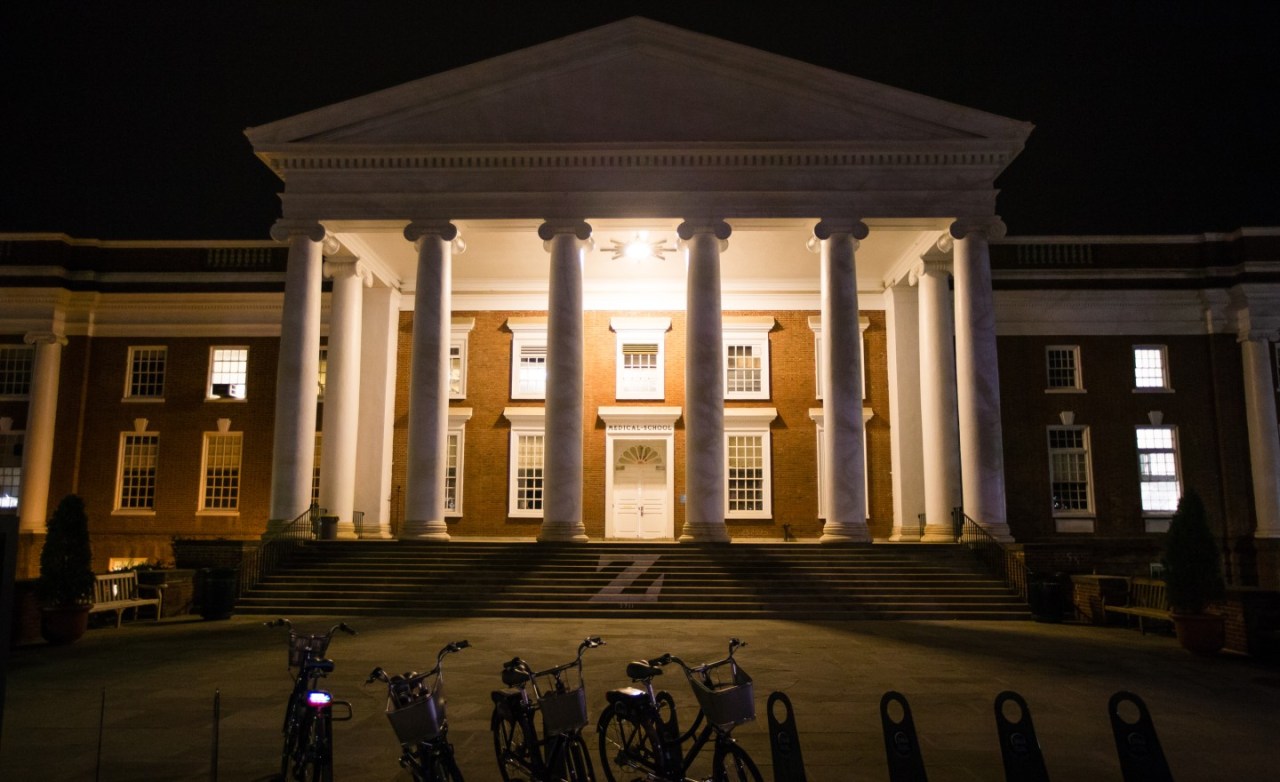Now Is the Time for Reparations
We are on the cusp of a historical and political shift.
Patrick Paul Garlinger
Feb 1·12 min read
The morning after the Senate run-off in Georgia, when
it was clear that the Rev. Raphael Warnock and Jon Ossoff had won their respective races, a thought flashed through my mind:
Now is the time for reparations.
Perhaps for the first time, with the public’s consciousness around race galvanized by the
Black Lives Matter movement, a government led by Democrats could conceivably pass H.R. 40, the bill advanced for decades to commission a study on reparations for African Americans. Reparations came to the forefront during the Democratic Primary for President, with many candidates — including
Vice President Kamala Harris — voicing support for reparations.
Time and again, scholars, writers, and activists have made the case for reparations. Yet time and again, H.R. 40, a bill that would only
study reparations, has never been close to passage, and white Americans continue to display high levels of hostility to the very idea of paying reparations to Black Americans. (Note: I have followed the New York Times’
approach to capitalization of the terms “white” and “Black.”)
Mitch McConnell, the former Senate Majority Leader, has voiced the view of many white people when he
objected to reparations on the grounds that the harm of slavery ended long ago, and the people of today were not responsible, and should not be held responsible, for harms they did not commit.
This is, in a nutshell, where reparations stand today. They remain deadlocked because a large sector of white America does not want to contemplate the past or acknowledge white privilege and supremacy. They are ignorant of the
historical push for reparations. There has been a shift, however, in public consciousness that may make the passage of H.R. 40 more plausible than ever before.
How do we break this logjam? Much of the debate occurs within a legal framework that rests on the assignment of liability and calculation of damages. But what if we thought about reparations differently and saw them as a way of dismantling white supremacy as a form of trauma?
The Arguments for Reparations
The case I make for reparations is, virtually every institution with some degree of history in America, be it public, be it private, has a history of extracting wealth and resources out of the African-American community.
— Ta-Nehisi Coates,
“Ta-Nehisi Coates Revisits the Case for Reparations”
Many writers have advanced cogent, powerful arguments for reparations, chief among them
Ta-Nehisi Coates and
William “Sandy” Darity. At the risk of oversimplifying their arguments, they argue that the primary and fundamental measure of the devastating harm inflicted by slavery is the wealth gap between Black and white Americans.
Coates, in his seminal piece in
The Atlantic, used housing policies as an example of how discrimination against Black Americans persisted and led to
the extraction of wealth by white-run institutions from Black families. Similarly, in his comprehensive work,
From Here to Equality, Darity puts forth numerous ways that wealth was taken from Black Americans, and drawing on the work of many in this area, offers differing calculations of the amount owed. As Coates
summarizes, “Black families, regardless of income, are significantly less wealthy than white families…. When financial calamity strikes … the fall is precipitous.”
In sum, reparations begin with the idea of a monetary debt — in legal terms, damages — that is owed to Black Americans. That debt stems from the impact of slavery itself, the subsequent failure of Reconstruction, Jim Crow, and into the present day with systemic racism that continues to maintain this wealth gap.
Hence, as
Dwyer Gunn points out in her summary of the arguments made by Coates, Darity, and others, while monetary relief may be the central component, reparations are not limited to money. They also include programs that are designed to protect African Americans from present-day discrimination. This can include job training,
education, and other measures to protect against gaps in wealth due to race. It also includes the acknowledgment, by the federal government, of the harms inflicted by the United States against African Americans.
Coates, Darity, and many others (see, e.g.,
Antonio Moore’s
“The Roadmap to Reparations”, and
Marcus H. Johnson’s
“What a Reparations Plan Could Look Like”) marshal a thorough historical record about Black Americans’ economic deprivation, legal precedent (such as the U.S. government’s willingness to pay reparations to Japanese Americans for the harms caused by internment during WWII), and various methods to make this kind of compensation a political reality (Darity, for example, suggests the creation of a government office devoted to overseeing the task).
Reparations are presented in a legal framework like a class action. The harm is presented as a claim for damages, with sophisticated means of calculating the amount. The authors must prove the harm, the damages to remedy that harm, and what members of the class should receive a portion of that remedy.
The objections, unsurprisingly, take the form that legal objections typically take: White people alive today did not cause the harm and thus are not liable; the debt cannot be calculated accurately; and, furthermore, the damages have already been repaid through other means such as anti-poverty measures and affirmative action. (On the reasons why affirmative action does not count as reparations, see Darity.)
Even the members of the class are sometimes the subject of debate. Who should get reparations — only American descendants of slaves or all Black Americans? Compelling arguments exist for each group, yet the Mitch McConnells of the world use this to say that reparations are impossible because it would be too difficult to identify who should receive the damages even if they were calculable.
As a lawyer, I understand the need to make a legal case, and why then these kinds of objections flow from it (even if none of them holds water, in my opinion). Many of the aforementioned authors have offered extremely persuasive rebuttals. Yet, despite their persuasive appeals to justice and precedent, white people resist the topic.
Race & Trauma
Social and political actions are essential, but they need to be part of a larger strategy of healing, justice, and creating room for growth in traumatized flesh-and-blood bodies.
— Resmaa Menakem,
My Grandmother’s Hands
Reparations for the harms that began with slavery are not a legal claim, at least not entirely. Advocates of reparations know this, and often point to the impact on all Black Americans:
We are dealing with trauma.
Systemic racism and white supremacy are sources of enormous physical and emotional trauma, which is connected to, but not the same as, economic deprivation. In the
words of
Catherine Pugh, Esq., “We do the Black diaspora a disservice by wrapping our recompense campaign around a subset of economic harm, and not the primary harm of gross, disparate treatment that
still plagues us.”
Indeed, when we shift our perspective to trauma, we understand that the objections from white people are not the measured, logical response of an attorney or judge. Instead, they come from the realm of emotion. What gets triggered by talk of reparations is white guilt and white fragility.
[1]
The law is often quite inadequate for dealing with emotional issues. That is not to say that we should abandon all of the legal arguments put forth — they are powerful and important — but our understanding of the purpose of reparations needs to expand so that we can appreciate them in the context of emotional trauma.
Resmaa Menakem issued a powerful call to healing in his landmark work,
My Grandmother’s Hands. In that work, he reframed the debate around racism by calling for us to see it as a form of trauma whose effects are carried in and through the body, generation after generation. The trauma inflicted upon African Americans is held deep in the body, passed from generation to generation
[2], and gets reinforced by systemic racism and microaggressions. When trauma is wound into the body, we have powerful emotional reactions — feelings of pain, insecurity, anger, or freezing, silence, and flight — whenever it is triggered.
The trauma of racism is not limited to Black Americans. His term, “white-body supremacy,” captures how white supremacy inflicts its harm on everybody, including white people. White people have their own traumatic responses — guilt, shame, and insecurity — that gets triggered when thinking about racism or contemplating the traumatic harm inflicted on, and carried through, the bodies of Black Americans.
According to Menakem, a trauma-informed theory of racism and white supremacy teaches us that we all carry, white and Black Americans, some kind of wound that began with slavery and persists today. That is not to say that the trauma of white supremacy is the same for whites and Blacks. It is not. But the way forward, he avers, is for each of us to heal that trauma.
His insights suggest that white Americans’ resistance to reparations is fundamentally an emotional, traumatic response, not a legal one. Legal arguments are pressed into the service of warding off the discomfort that arises in white people’s bodies. That is why legal arguments will never truly win over Mitch McConnell or anybody who shares his views.
This view also explains why, if the federal government were to just cut checks tomorrow for all Black Americans, systemic racism would not go away; reparations wouldn’t actually fulfill the damages claim, because white supremacy, going forward, would continue to inflict damage. The unhealed trauma would emerge again. Mass incarceration, police brutality, and wrongful prosecutions based on coerced confessions are just some of the ways that systemic racism, as a form of trauma, would persist. As the Exonerated 5 recently argued in
The New York Times, the harms inflicted upon them are still very much a part of our system today.
Reparations advocates know this, of course, which is why even while framing the argument in legal terms, they make clear that reparations are ultimately a vehicle for spiritual and emotional healing. “What I’m talking about is more than recompense for past injustices — more than a handout, a payoff, hush money, or a reluctant bribe. What I’m talking about is a national reckoning that would lead to spiritual renewal,”
writes Coates.
Trauma-Informed Reparations & A New Model of Responsibility
Whites and blacks would come to terms over the past, confront the present, and unite to create a new and transformed United States of America.
— William “Sandy” Darity,
From Here to Equality
The suppression of Black votes, the lies spread about a stolen Presidential election, and the failed insurrection on the Capitol are some of the most recent examples of a white trauma response. The inability of facts and evidence — i.e., legal argument — to dispel the falsehoods is further evidence that we are in the realm of emotional trauma. Hence, the political work cannot be decoupled from the kind of work that is happening now in spiritual and psychotherapy circles, and in the realm of mindfulness and unconscious bias work.
It is also important that this work become a national enterprise. The infliction of pain will persist until this is a collective endeavor, in which white people face the historical record that is also embedded, in its own ways, in our bodies.
But this is where we can come back to reparations and see them in a new light. Not solely a legal claim, reparations are a means to healing a rift in our collective consciousness.
The process starts by looking, collectively, at society’s white-supremacy pain body. This is the start of what
Darity calls “acknowledgment” and Coates
refers to as “the official imprimatur of the state.” It is what happens if H.R. 40 becomes a reality and our government begins the urgent task of bearing witness to the vast historical record, from slavery, through Jim Crow, to white supremacy today.
All healing must begin by facing the wound. This is why Coates emphasizes that the answers we come up with are perhaps less important than starting the conversation. But it would be incredibly powerful and healing to have the U.S. government hold hearings, with experts testifying, issue reports and recommendations, and spark public debates about the wealth gap, discriminatory policies, and systemic racism today.
But any such work would have to acknowledge that we are not solely in the realm of legal discourse. It would need to bring in the expertise of people like Menakem, so that white supremacy is also understood within the framework of trauma and not exclusively in the formalistic terms of victim, damages, debt, and liability. In other words, the work must be balanced between history, law, and policy, on the one hand, and the spiritual work of soul mending and healing bodies, on the other.
Doing so can help us to move beyond the limits of those legal terms. While the nation, through such a commission, would still debate who should receive reparations, having that debate would force the nation to grapple with how emotional trauma gets carried from one generation to the next and becomes historical trauma. Such a commission might conclude that a reparations program need not be a one-size-fits-all design, with only one kind of monetary payment to one distinct group.
Seeing reparations as a vehicle for healing trauma means that we would not look exclusively at monetary damages. Those, of course, would not be off the table. The wealth gap is real and is itself an ongoing source of emotional pain. How we measure the amount of the debt, and whether any such figure is sufficient to redress the economic deprivation, is itself part of facing the historical record. Forcing the topic of monetary payments forces the kind of reckoning that Coates, Darity, and other advocates call for.
But that reckoning also means that reparations would extend beyond monetary payments to policy changes and public benefits programs that many reparations advocates have proffered. What if the Department of Education provided curricula and guidance on teaching about historical trauma? As
Marley K. argues, much of the work of reparations will involve a massive re-education of the American public.
What if we expanded this notion to have the federal government provide grants to state and local governments to fund the work of cultural centers focused on trauma? What if there were federal resources for the kind of trauma-informed healing work that Menakem and others espouse? (Germany’s payment of reparations to Israel included trauma work.)
Moreover, seeing reparations in this light means that our concept of liability moves out of the legalistic realm of laches (the harm is too far in the past to redress now) and causation (I am not the party who caused the harm, so I can’t be held responsible).
Viewing reparations in this way might shift us out of a model of responsibility rooted in individual, legalistic liability and toward something akin to a kind of spiritual fellowship. We are all responsible because Black people suffer enormously under a white supremacist society, and, as Meskanem argues, white people continue to both benefit
and suffer. As Darity reminds us, “[t]he majority of the populace also must accept national responsibility for the damages inflicted on black people.” Reparation — as a process — becomes the way that we make the nation whole again.
This is part of the work that H.R. 40, or a similar bill designed to study how to redress the harms of white supremacy, could accomplish. There will still be resistance, of course. White people will still marshal legalistic objections. This task of persuading white people about what must be done is something that white people must assume. But if part of this work also entails reframing it so that it can be understood as a “national redemption,” as Darity puts it, we may be more equipped to meet white resistance skillfully as a trauma response.
We are on the cusp of a historical shift, and the political opportunity is ripe with a new administration and a Democratic Congress. Now is the time to lift our nation out of the seventeenth-century crucible that we have all been constructed in to create a new version of ourselves. Let us boldly move toward repairing the devastation of slavery, systemic racism, and white supremacy, starting with the passage of a reparations bill.
[1] Menakem says that white fragility is a fantasy and a myth, and asks his readers to call it out. Here, I can recognize that writing on race as a white person triggers a desire to avoid any discomfort and to ward off any objection or criticism. It comes tinged with the whiffs of savior syndrome and a desire to be seen as “different.” That’s what it means to face white supremacy and fragility in one’s body. Owning it doesn’t quite dispel it, it doesn’t reposition me as somehow different, and it doesn’t afford me that space of comfort that all white people reflexively try to get to. All I can do is bear witness and acknowledge that it’s in me and in my white readers too.
[2] Generational trauma is not limited, of course, to Black Americans. For an analysis of generational trauma in the Jewish community, see Rabbi Tirza Firestone’s
Wounds into Wisdom.







 "What about republicans?" 50 years of diehard loyalty.
"What about republicans?" 50 years of diehard loyalty. 
